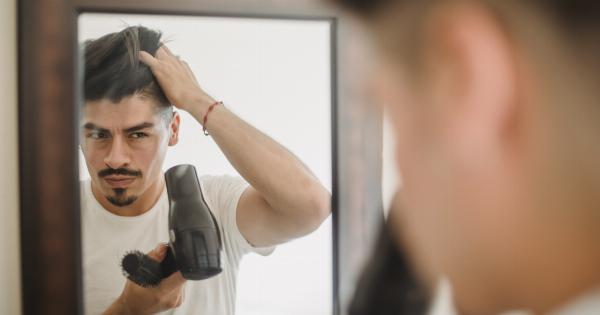Hair loss affects millions of men and women all around the world but few people are aware that it can also be a result of autoimmune disorders.
In this article, we will delve deeper into autoimmune hair loss, and the various treatments available for its management.
What Is Autoimmune Hair Loss?
Autoimmune hair loss is a type of hair loss that comes as a result of an autoimmune disease. This happens when the immune system attacks hair follicles by mistake causing the hair to fall out.
This condition is also known as alopecia areata and it does not only cause hair loss on the head but can also affect hair on other parts of the body like the face, brows, and legs.
What Are The Causes of Autoimmune Hair Loss?
The exact cause of autoimmune hair loss is still unknown but it is believed to be the result of a combination of genetic and environmental factors.
Researchers have linked autoimmune hair loss to certain gene mutations that predispose people to develop the condition. Environmental triggers like pollution, stress, and unhealthy diets are believed to exacerbate the condition.
What Are The Symptoms of Autoimmune Hair Loss?
Autoimmune hair loss presents itself differently in different people. For some, it may manifest as small patches of hair loss while for others it may result in complete hair loss on the scalp or entire body.
The hair may fall out suddenly and leave smooth, round bald patches on the skin. In some cases, however, hair may fall out gradually and be accompanied by itching, tingling, or burning sensations on the scalp.
How Is Autoimmune Hair Loss Diagnosed?
If you suspect that you have autoimmune hair loss, it’s important to get a proper diagnosis from a dermatologist or hair loss specialist.
The doctor will perform a physical examination of your scalp and hair and may take a small sample of your hair to examine under a microscope. Further blood tests may also be ordered to check for autoimmune disorders like lupus or thyroid disease which can cause hair loss.
What Are The Treatment Options For Autoimmune Hair Loss?
There is no known cure for autoimmune hair loss but there are a few treatment options available to manage the condition and encourage hair regrowth. Some of the most common treatments include:.
1. Corticosteroids
Corticosteroids are anti-inflammatory drugs that suppress the immune system’s attack on hair follicles. They can be administered topically, orally, or as injections.
Depending on the severity of the condition, a dermatologist may prescribe a course of steroid injections directly into the scalp. This can help stimulate hair regrowth in bald patches.
2. Topical Immunotherapy
Topical immunotherapy is a treatment that involves applying chemicals like diphencyprone (DPCP) or squaric acid dibutylester (SADBE) to the scalp to stimulate an allergic reaction.
This helps to redirect the immune system’s attention away from hair follicles, allowing hair to regrow.
3. Minoxidil
Minoxidil is a drug that was originally developed to treat high blood pressure but is now also used to treat hair loss. It works by increasing blood flow to hair follicles, stimulating them to grow new hair.
Minoxidil is available as a topical solution or foam that is applied directly to the scalp. It’s important to note that this medication works best when used continuously.
4. Aromatherapy
Some studies have suggested that aromatherapy can help to stimulate hair growth in people with autoimmune hair loss. Essential oils like rosemary and peppermint oil have been found to be particularly helpful in boosting hair regrowth.
However, it’s important to exercise caution when using essential oils as they can cause allergic reactions or irritation in some people.
5. Hair Transplant Surgery
Hair transplant surgery involves moving hair from areas of the scalp where there is still hair growth to bald spots. This is an option for people with severe hair loss who want to restore their hairline.
It’s important to note that hair transplant surgery can be expensive and may require multiple procedures over time depending on the extent of hair loss.
Conclusion
Living with autoimmune hair loss can be emotionally and physically distressing but there are treatment options available to manage the condition and encourage hair regrowth.
It’s important to work closely with a dermatologist to find a treatment plan that works best for you. We hope this article has provided you with a better understanding of autoimmune hair loss and the available treatment options.
























